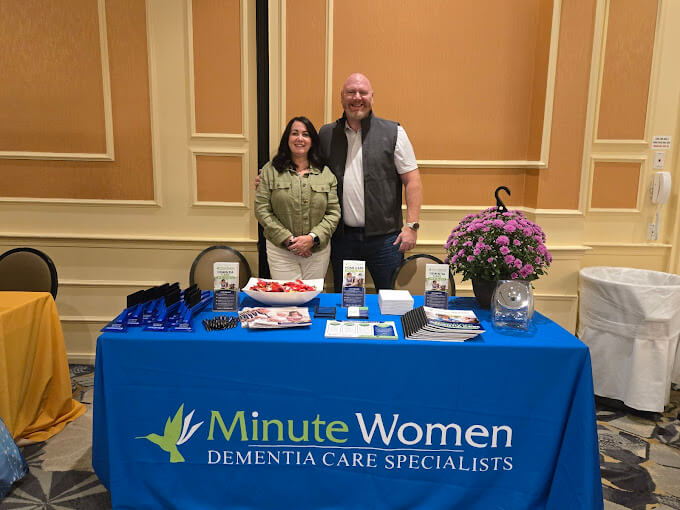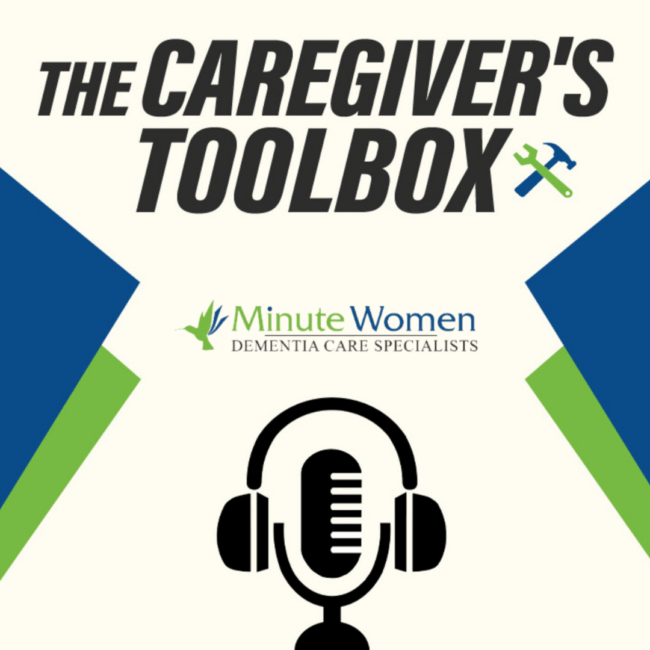A Family’s Guide to Home Care Services in Massachusetts
Are you or a loved one in need of home care services in Massachusetts? Look no further – this comprehensive guide has everything you need to know.
From skilled nursing to personal care assistance, home care services provide valuable support and medical care in the comfort of your own home. In Massachusetts, there are a wide variety of home care providers offering an array of specialized services to meet your unique needs.
Massachusetts alone has over 2,000 private agencies and hundreds, if not thousands, of home health agencies.
Whether you require assistance with daily activities, medication management, or post-operative care, understanding the options available to you is crucial. This guide will delve into the different types of home care services, eligibility requirements, and how to choose the right provider for you or your loved one.
With insights from industry experts, real-life stories, and helpful tips, this guide will equip you with the knowledge and resources to make informed decisions about home care services in Massachusetts. Discover the benefits of home care and how it can improve the quality of life for you or your family members. Get ready to embark on the journey to exceptional care in the comfort of your own home.
What We’ll Cover:
- Types of home care services
- VNAs and certified home care
- Types of home health caregiving
- Private home care services
- Referral agencies vs. employment agencies
- Massachusetts home care program
- Home care regulations and licensing
- Understanding the role of home care providers
- Benefits of private home care services
- Choosing the right home care agency
- Private home care costs and financial assistance
- Frequently asked questions about home care services
- Key takeaways
Types of Home Care Services Available
Home care services in Massachusetts encompass a wide range of specialized assistance tailored to meet the diverse needs of individuals. There are three main types of home care services in Massachusetts, each focusing on a different segment of the population.
Home Health: Funded by Medicare, this is short-term care typically provided after a hospital stay or short-term rehab. It focuses on medical needs and rehabilitation.
Private Home Care: Paid out-of-pocket by the family, this offers long-term support with flexible, extended hours that can continue indefinitely, provided the family can afford it.
Massachusetts Home Care Program: Reimbursed through MassHealth and delivered via ASAP services. It generally involves short, weekly task-based visits, though in certain cases, longer blocks of care can be arranged.
Visiting Nurse Associations (VNAs) and Certified Home Care
For the purposes of this article, we will refer to these types of agencies as home health companies, which can include both for-profit and non-profit organizations that provide short-term care. A Visiting Nurse Association (VNA) is a non-profit, while a home health company (also known as certified home care) is typically for-profit. These agencies are reimbursed through Medicare.
A home health agency is often used when a senior is discharged from a hospital or post-acute rehab facility and requires assistance at home during their recovery. Services may include nurses, therapists, and home health aides.
A common misconception about home health care is that it provides unlimited service hours for an indefinite period. While Medicare does cover home health services, it only provides coverage for a limited duration.
Typically, a senior will receive care a few days a week, with visits lasting 2-4 hours each day. Nurses address medical needs such as administering IVs, managing medications, and providing wound care. Therapists assist with mobility exercises, while home health aides help with daily activities such as dressing, sponge baths, and other non-medical tasks.
Types of Home Health Caregiving
Medical Care: Registered nurses (RNs) and licensed practical nurses (LPNs) deliver comprehensive medical care in the home, including wound care, medication management, and monitoring chronic conditions. They collaborate closely with physicians to ensure that patients receive the necessary medical attention and support.
Personal Care Assistance: Home health aides (HHAs) and certified nursing assistants (CNAs) provide hands-on assistance with daily activities such as bathing, dressing, grooming, and meal preparation. This care is designed to foster independence and improve the quality of life for individuals who need help with basic self-care tasks.
Rehabilitative Therapy: Physical therapists, occupational therapists, and speech therapists offer specialized rehabilitation services to assist patients in recovering from injuries, illnesses, or disabilities. These therapies aim to improve mobility, restore function, and enhance overall well-being.
Hospitals or rehab facilities often recommend supplementing certified home care services with private home care services for additional support.
PROS: Covered by Medicare, ideal for short-term recovery.
CONS: Limited care hours per week, not designed for long-term care or extended durations.
Private Home Care Services
Private home care companies provide home health aides, certified nursing assistants (CNAs), and homemakers.
These agencies offer a wide range of services aimed at promoting injury prevention, nutrition, and supervision for individuals who need assistance with their activities of daily living (ADLs).
Private home care is often used when a senior requires more help than what is provided by a certified or VNA home care agency under Medicare reimbursement, typically for longer periods of time.
Think of private home care as having lifeguards on duty at the beach—they may not always be actively involved. Still, they are always available to provide support and intervene whenever necessary.
Private home care aides assist with a variety of daily tasks, including:
- Bathing
- Toileting
- Dressing
- Meal preparation
- Chores
- Fall prevention
- Supervision
- Transportation
Many families choose to use private home care in combination with home health services due to the limited amount of time home health aides or nurses can spend in the home.
Once the home health benefit has been exhausted, families will continue with private home care services.
Private care is paid directly by the family receiving the services, as insurance typically does not cover these non-medical needs. However, long-term care insurance or veterans’ aid and attendance benefits can significantly reduce out-of-pocket costs.
PROS: On-demand caregivers, no limits to care hours, ideal for long-term quality of life maintenance.
CONS: Not covered by insurance, higher out-of-pocket expenses.
Referral Agencies vs. Employment Agencies
Private duty home care companies operate under two business models: the referral agency model (which is becoming less common) and the employment agency model.
In the employment agency model, caregivers are employees of the agency. The agency manages the insurance, payroll, taxes, and oversight of the caregiver, which allows families to communicate directly with the agency about any changes, concerns, or feedback. The agency then addresses these issues with the caregiver, making the process more streamlined for the family.
In the referral agency model, the caregiver is considered the family’s employee. The agency acts as an intermediary, introducing the caregiver to the family and charging a flat or ongoing hourly fee. However, the agency does not manage the caregiver, handle payroll, provide insurance, or address issues the family may have with the caregiver. These responsibilities fall to the family.
The majority of private home care agencies in Massachusetts employ their caregivers, as many referral agencies have shifted to the employment model. This change is driven by families’ preference to work with a single entity for payment, as well as the rise of marketplace websites for caregivers, which have bypassed the referral agency, eliminating the middleman.
We can help you find expert-level dementia care for your aging parents
Massachusetts Home Care Program
And just to keep things interesting, there’s the Massachusetts Home Care Program—another service with a similar name but aimed at a totally different group of people! They sure know how to keep us on our toes, don’t they?
To recap:
Home Health: Funded by Medicare, this is short-term care typically provided after a hospital stay or short-term rehab. It focuses on medical needs and rehabilitation.
Private Home Care: Paid out-of-pocket by the family, this offers long-term support with flexible, extended hours that can continue indefinitely, provided the family can afford it.
Massachusetts Home Care Program: Reimbursed through MassHealth and delivered via ASAP services. It generally involves short, weekly task-based visits, though in certain cases, longer blocks of care can be arranged.
Each option serves a distinct purpose, so it’s important to choose the one that best fits your situation!
The Massachusetts Home Care Program, administered through Aging Services Access Points (ASAPs), offers a comprehensive suite of services designed to support adults aged 60 and over, individuals with disabilities, and those under 60 living with early-onset Alzheimer’s disease or related dementias.
The program’s primary objective is to enable these individuals to age in place, maintaining their independence and quality of life within their communities.
Requirements for the Massachusetts Home Care Program
To qualify for this program, several requirements must be met, with financial eligibility being the most common barrier. While exceptions exist, it is often the case that many families discover they do not qualify due to exceeding the maximum income limits, as this program is funded through MassHealth.
- Age: Applicants must be 60 years of age or older. Individuals under 60 may also qualify if they have a diagnosis of early-onset Alzheimer’s disease or a related dementia.
- Residency: Applicants must reside in Massachusetts and live at home, not in an institutional setting or a certified assisted living facility.</span>
Functional Needs Assessment
Eligibility is also based on the individual’s ability to perform daily tasks. A comprehensive assessment is conducted to determine the level of assistance required with activities such as bathing, dressing, meal preparation, and medication management.
Financial Eligibility
While the program primarily assesses functional needs, financial considerations also play a role:
- MassHealth Members: Individuals already enrolled in MassHealth are financially eligible for the Home Care Program.
- Income Guidelines: For those not enrolled in MassHealth, income guidelines apply. As of 2024, the annual gross income limit is $33,948 (approximately $2,829 per month).
Services Offered
The Home Care Program provides a diverse array of services tailored to meet the unique needs of each participant. These services are determined based on an individual’s assessed requirements and include:
- Home-Delivered Meals
- Many participants rely on nutritious meals delivered to their homes as a key component of staying independent, especially when mobility or energy levels are reduced.</span>
- Personal Care
- Assistance with activities of daily living (ADLs), such as bathing, dressing, and toileting, is critical for individuals who wish to age in place but need support with personal hygiene and mobility.
- Homemaker Services
- Help with routine household tasks like cleaning, laundry, and meal preparation is consistently in demand, as these tasks often become difficult for older adults or those with disabilities.</span>
- Transportation Services
- Access to medical appointments, social engagements, and community activities is essential for maintaining health and reducing isolation. Transportation services are a vital lifeline for individuals without personal or public transport options.
- Respite Care
- Providing temporary relief for family caregivers is a top priority, as many families use these services to maintain their caregiving roles while preventing burnout.
These services meet essential needs like nutrition, personal care, household upkeep, mobility, and caregiver support, making them invaluable to many participants. Massachusetts Home Care also provides a wide range of additional services for eligible seniors. To learn more, contact your local ASAP provider to explore available options and confirm your eligibility.
Home Care Regulations and Licensing in Massachusetts
Depending on the service, there can be regulations and licensing for home care companies, but it depends on the TYPE of home care company you are working with.
Home Health Care Agencies
Home health care agencies in Massachusetts are subject to a comprehensive regulatory framework designed to ensure the safety, quality, and accountability of the care they provide, as Medicare reimburses these agencies.
In Massachusetts, home health care agencies must be licensed by the Department of Public Health (DPH) and adhere to a variety of regulations and standards established by the state. These regulations cover areas such as staff qualifications, training requirements, patient rights, and the provision of home care services.
Additionally, providers in Massachusetts must meet specific licensing and certification requirements. Registered nurses (RNs) and licensed practical nurses (LPNs) must hold valid licenses issued by the Massachusetts Board of Registration in Nursing. Home health aides (HHAs) and certified nursing assistants (CNAs) are required to complete state-approved training programs and pass competency exams to ensure they meet the standards of care.
Private Home Care Agencies
Private home care agencies in Massachusetts are not required to be licensed or certified by any regulatory body, except for compliance with the Department of Labor. There is no specific licensing process to open or operate a private home care agency, even for those offering private nursing services.
To start a private home care business in Massachusetts, you only need to obtain a standard business license through the Secretary of State. Beyond this, there are no additional regulatory or licensure requirements specific to the industry.
Most private home care agencies focus on providing non-medical care, such as assistance with Activities of Daily Living (ADLs) like feeding, dressing, bathing, and mobility support. Since these services are non-medical, they are not regulated by the Department of Public Health. Furthermore, because private home care agencies operate on a private-pay model, rather than being reimbursed by Medicare or Medicaid, they are not overseen by the Centers for Medicare & Medicaid Services (CMS).
Hiring Regulations
There are also no mandated hiring regulations for private home care agencies, meaning they can legally hire individuals with no prior training or experience in caregiving. In theory, an agency could hire someone with an unrelated background, such as a landscaper, and send them to provide care. There are no state laws that prevent this.
However, many reputable private home care agencies prioritize professionalism and competency in their staff. These agencies often hire vetted caregivers who hold certifications like Home Health Aide (HHA) or Certified Nursing Assistant (CNA) credentials, which are typically obtained through accredited training programs.
The key takeaway for families is that the responsibility to thoroughly vet and evaluate potential home care agencies lies with them. Asking the right questions, verifying caregiver qualifications, and conducting due diligence are essential steps in selecting the best agency for their loved one’s needs. Transparency about these industry realities will help families make informed decisions.
Contact us today for a fast, friendly conversation about your loved one’s needs
Understanding the Role of Home Care Providers
Home care providers in Massachusetts play a vital role in ensuring the well-being and independence of individuals who require assistance with daily living activities or medical care.
These dedicated professionals work closely with patients, families, and healthcare teams to develop and implement personalized care plans that address the unique needs of each individual.
Registered nurses (RNs) and licensed practical nurses (LPNs) are responsible for providing skilled nursing care, which may include wound management, medication administration, and monitoring of chronic health conditions. They work closely with physicians to ensure that patients receive the necessary medical attention and support.
Home health aides (HHAs) and certified nursing assistants (CNAs) are responsible for providing personal care assistance, such as help with bathing, dressing, grooming, and meal preparation. These caregivers play a crucial role in promoting independence and improving the overall quality of life for their clients.
Benefits of Private Home Care Services
Private home care services in Massachusetts offer a multitude of benefits that can significantly improve the lives of individuals and their families. By receiving care in the comfort of their own homes, patients can maintain a greater sense of independence, dignity, and control over their daily routines.
One of the primary advantages of home care is the ability to prevent or delay institutionalization, such as admission to a nursing home or assisted living facility.
By receiving personalized care and support in their familiar surroundings, individuals can often avoid or postpone the need for more intensive levels of care, allowing them to remain in their homes for as long as possible.
Private home care services also play a crucial role in reducing the burden on family caregivers. By providing professional assistance with various tasks, home care providers offer respite and support to family members, enabling them to manage their responsibilities better and maintain a healthy work-life balance. This can lead to improved emotional well-being for both the patient and the caregiver.
Choosing the Right Home Care Agency
Navigating the landscape of home care agencies in Massachusetts can be a daunting task, but with the right information and guidance, you can make an informed decision that best meets your or your loved one’s needs.
One of the first steps in finding the right home care agency is to determine the specific services required. This may involve consulting with healthcare providers, social workers, or local resources to assess the level of care needed. Once you have a clear understanding of the required services, you can begin researching and comparing home care agencies in your area.
When evaluating home care agencies, it’s essential to consider factors such as the agency’s reputation, licensing and accreditation, staff qualifications, and the range of services offered. It’s also important to assess the agency’s communication and responsiveness, as well as their ability to match you or your loved one with the most suitable caregiver.
Private Home Care Costs and Financial Assistance
Private home care costs in Massachusetts vary based on service type, frequency, and location. Personal care services typically range from $40 to $50+ per hour. Skilled nursing services may cost $100+ per hour, depending on the level of care needed. Some agencies require a minimum number of hours per visit, which can affect the total cost.
Live-in care services can be as high as $700 per day. These costs can quickly add up, especially for individuals who require around-the-clock or long-term care.
TIP: Genworth has a cost-of-care study for each state in the US, including Massachusetts.
There are several financial assistance options available in Massachusetts to help offset the cost of home care services. These include Medicaid, Medicare, and various state-funded programs. Two of the most helpful are Aging Services Access Points (ASAPs) and the Program of All-Inclusive Care for the Elderly (PACE). Typically, these state-paid services are provided to those with low-income status, which many do not qualify for. Additionally, long-term care insurance policies provide coverage for home care services, assisted living communities, and skilled nursing facilities.
Frequently Asked Questions About Home Care Services
Q: What is the difference between home care and home health care?
A: Home care and home health care are related but distinct services. Home care typically refers to non-medical assistance with activities of daily living, such as personal care, homemaking, and companionship. Home health care, on the other hand, involves skilled nursing and rehabilitative services provided by licensed healthcare professionals. These include registered nurses, physical therapists, and occupational therapists.
Q: How do I know if my loved one is eligible for MassHealth home care services?
A: Eligibility for home care in Massachusetts depends on medical needs, daily functioning, and financial resources. Consult a healthcare provider, social worker, or local Aging Services Access Point (ASAP) to determine your eligibility. These professionals can assess your situation and guide you through available MassHealth services and support programs.
Q: How do I choose the right private home care agency?
A: When choosing a private home care agency, consider licensing, accreditation, caregiver training, and client reviews. Interview multiple agencies to compare services, staff qualifications, and availability. Ask about their caregiver matching process and how they handle care plan updates or client feedback. Make sure the agency’s values and approach align with your loved one’s needs, personality, and preferences.
Q: How much do home care services cost in Massachusetts?
A: The cost of home care in Massachusetts varies based on the type, frequency, and provider of services. Geographic location also affects pricing, with urban areas often costing more than rural ones. Personal care assistance typically costs between $40 and $50 per hour. Private nursing services may exceed $100 per hour, depending on the provider. Explore financial assistance options like Medicaid, Medicare, and state-funded programs to help reduce overall home care expenses.
Q: What happens if I’m not satisfied with the private home care provider?
A: If you’re unsatisfied with a home care provider, share your concerns directly with the agency. Reputable Massachusetts agencies have formal procedures for addressing complaints and concerns. If issues aren’t resolved, you can switch to a different provider that better fits your needs and preferences.
Read More: We have an extensive FAQ page.
Key Takeaways
Home care services in Massachusetts offer a vital lifeline for aging seniors. These services include medical attention, personal assistance, or rehabilitative support.
Understanding your options helps you choose the right home care provider for your or your loved one’s well-being and independence. This guide offers helpful resources to navigate skilled nursing, personal care, and specialized therapies in Massachusetts. Exploring home care benefits and available financial support prepares you to confidently find care that fits your unique needs.
Choosing home care is personal—include doctors, family, and trusted advisors in the decision-making process. With knowledge and support, you can make thoughtful choices that protect independence and improve long-term quality of life.
Call us to learn how our in-home dementia care specialists can help!
About Us
Minute Women is a premium, non-medical, in-home dementia care service provider. We assist our clients with activities of daily living so they can live at home with dignity and respect. We also support families in their mission to age in place rather than transition to a nursing facility.
Connect With Us

Subscribe to The Caregiver’s Toolbox Podcast




